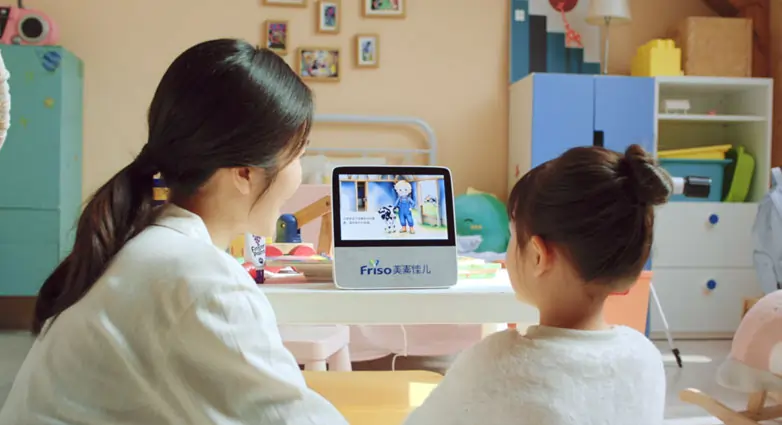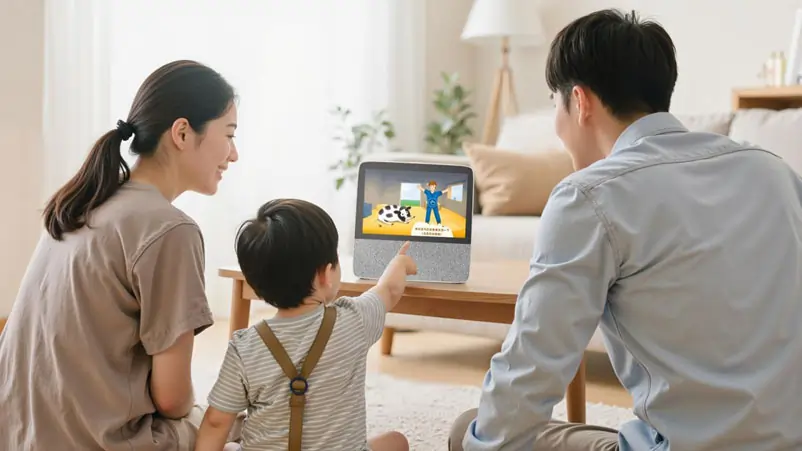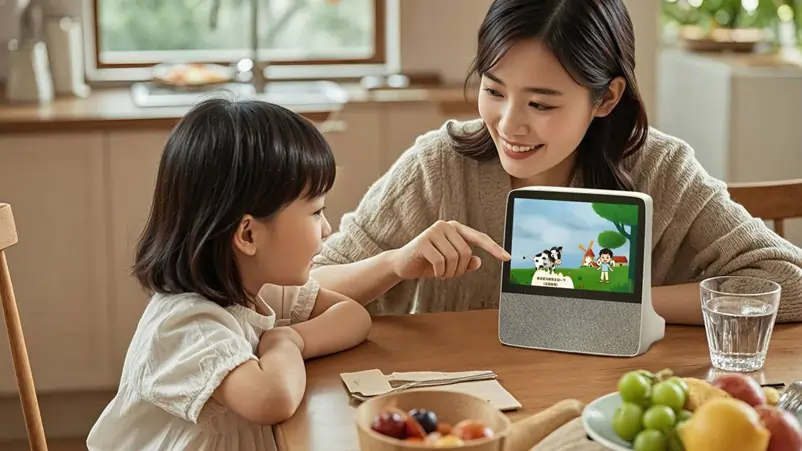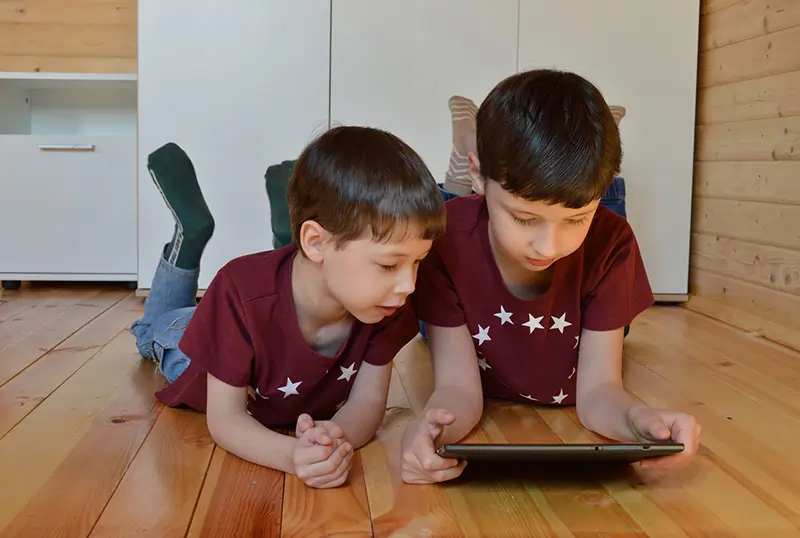Global Perspective: How AI Is Reshaping China’s Maternal and Infant Market
Artificial intelligence (AI) is transforming industries worldwide at an unprecedented pace, and China—home to the world’s largest maternal and infant market—is at the forefront of this shift. According to data from Grand View Research, China’s AI-powered parenting market is projected to grow from $2.044 billion in 2024 to $12.583 billion by 2030, with a compound annual growth rate of 35.4%. This remarkable growth reflects not only advancements in technology but also a rising demand among Chinese families for smart parenting solutions.
Against this background, artificial intelligence is rapidly transforming the mother and infant sector by making major inroads in early childhood education, smart hardware, and parent-child interaction. Parents’ demand for more effective parenting tools is met by the development of creative products including smartwatches, AI-enabled home appliances, and intelligent toys, so enhancing children’s learning and play opportunities.
Market Pain Point: Where Parenting Anxiety Meets the Demand for Technology
The market pain point is where parenting anxiety meets technological demand.
Many parents still have great difficulties even if parenting tools are becoming more and more accessible in China. More parents are feeling the twin stresses of limited time and emotional strain as urbanization rises and dual-income households become rather common. Studies reveal that almost 60% of Chinese parents attribute their main cause of parenting anxiety to “insufficient time spent with their children.”
Concurrent with this is changing parent demographic profile. Born in the 1990s and mid-1990s, millennials and Gen Z are progressively taking front stage in the mother and baby consumer market. But conventional parenting techniques sometimes lack interactivity and personalization, which would not satisfy the demand of this new generation for “quality engagement” with their children. Parents of today want emotionally interactive and immersive parenting experiences, not only knowledge or product ability.
Particularly in areas like bedtime companionship, educational guidance, and emotional interaction, over 68% of young parents indicated in the 2023 China Smart Parenting Device User Insights Report by iiMedia Research that they would be ready to adopt artificial intelligence or smart devices to help in parenting.
Leveraging AI technology to provide more immersive and interesting parenting solutions has thus become a major area of innovation and possibility inside China’s mother and child sector.
Brand Initiatives: Innovative Applications of AIGC in Children’s Storybooks
Against this background, forward-looking companies have started including artificial intelligence technology into parent-child interaction and releasing creative ideas to satisfy changing customer needs. One prominent example is the Dutch infant nutrition brand Friso, which has long-standing early childhood development concentration. Friso has keenly noted in the Chinese market the growing need among modern couples for more meaningful and superior companionship.
To respond, the brand teamed with a top local smart home platform to co-develop “The Awesome AI Kaleidoscope,” an interactive audio storybook. This partnership uses AI-generated content (AIGC) to produce a rich, interesting narrative experience meant to deepen emotional ties between parents and children.

Technology-Driven: How AI Is Redefining the Parent-Child Bond
Originally published in 2023, “The Awesome AI Kaleidoscope” audio storybook has seen three significant technological developments, progressively transforming into an AI-powered parent-child content IP focused on “parental voice companionship.” The emotional link produced by voice cloning technology—which uses artificial intelligence speech synthesis to convert a parent’s voice into the main means of daily contact—is the core of this invention.
Parents can create a completely narrated storybook in their own voice automatically using just one voice recording. Children’s daily events—reading, sleeping, and growing up—along with comfort and continuity even when parents are away for business or other obligations—this familiar voice accompanies them through these times. Using artificial intelligence guarantees that a parent’s presence is felt even in their physical absence.
For many families, this emotionally sensitive quality has rapidly become a useful tool providing a fresh approach to strengthen emotional ties via technology.

Building on the basis of emotional voice interaction, “The Awesome AI Kaleidoscope” also stresses interactive involvement for children by letting them “appear in the story.” A child’s likeness can be included straight into the narrative as a main character by means of artificial intelligence image generating technologies. This helps kids to really “step into the narrative,” traveling adventures with characters from the pastoral backdrop of the story. The outcome is a stronger feeling of immersion and belonging, so strengthening the emotional resonance of the storytelling process.

In its 3.0 version, “The Awesome AI Kaleidoscope” introduces a more immersive and interactive experience, with two key upgrades centered around “tactile engagement”:
- Touch-Activated Animations: Powered by AI-based image recognition and response mechanisms, children can tap characters in the storybook to trigger animations, bringing the narrative to life and enhancing interactivity and immersion.
- Interactive Doodling: A new coloring and drawing feature encourages children to create their own artwork while reading. This shift from passive listening to active participation nurtures creativity, self-expression, and imagination.
From “voice-based companionship” to “immersive interactivity,” from “one-way storytelling” to “co-creation between parent and child,” The Awesome AI Kaleidoscope uses technology to improve emotional connection in more sensible and intelligent means. While opening new opportunities for the mother and child sector—where parenting is not only about care but also shared, significant events – it is redefining how modern families connect and bond.

Looking Ahead: A New Parent-Child Ecosystem Powered by AI
AI is poised to become ever more important in the mother and childcare sector as technology develops. Future parenting tools will be fundamental enablers in creating a new ecosystem of parent-child interaction, surpassing mere improvement of product functionality.
AI will shortly be able to examine children’s actions and emotional patterns in order to create customized parenting advice. By means of smooth integration with smart home appliances, it will facilitate more connected interactions among family members. Simultaneously, data-driven insights will enable parents to use more informed and scientific methods of raising their children.
Brands will not be able to operate just as product providers as artificial intelligence gets more ingrained in daily family life. Rather, they will become designers of the parenting ecosystem, working with households to co-create more intelligent, sympathetic parenting experiences.

Conclusion: Co-Creating the Future of Parent-Child Bonding in the Age of AI
Parent-child interactions are moving from conventional models to future-forward experiences as artificial intelligence technology develops—from merely “telling stories” to “co-creating stories,” and from one-way companionship to dynamic, two-way engagement. Technology is changing the way that family emotional ties are developed and maintained.
But this change reflects the great integration of technology, brand vision, and family values, not only a victory of invention. Not only must really effective AI-driven parenting solutions be intelligent; they also have to be compassionate. They have to grasp the emotional subtleties of family life, not only precisely meet user needs.
Looking ahead, artificial intelligence will become an emotional link inside the house rather than only a babysitter. While it may never replace the role of a parent, it has the potential to extend the time, presence, and emotional expression that parents can share with their children—bringing more warmth, support, and connection to the parenting journey.
As demonstrated by The Awesome AI Kaleidoscope 3.0, AI is no longer just a tool—it is becoming a true member of the family: emotionally aware, interactive, and co-creative. It stands as the emotional link among modern families, brands, and technology.
The mother and child market of China today approaches the level of an artificial intelligence-driven revolution in parent-child interaction. This signifies the change in parenting culture itself, not only a business improvement. And the next chapter of this transformation is being written by every innovator, every family-focused brand, and every next-generation parent.



